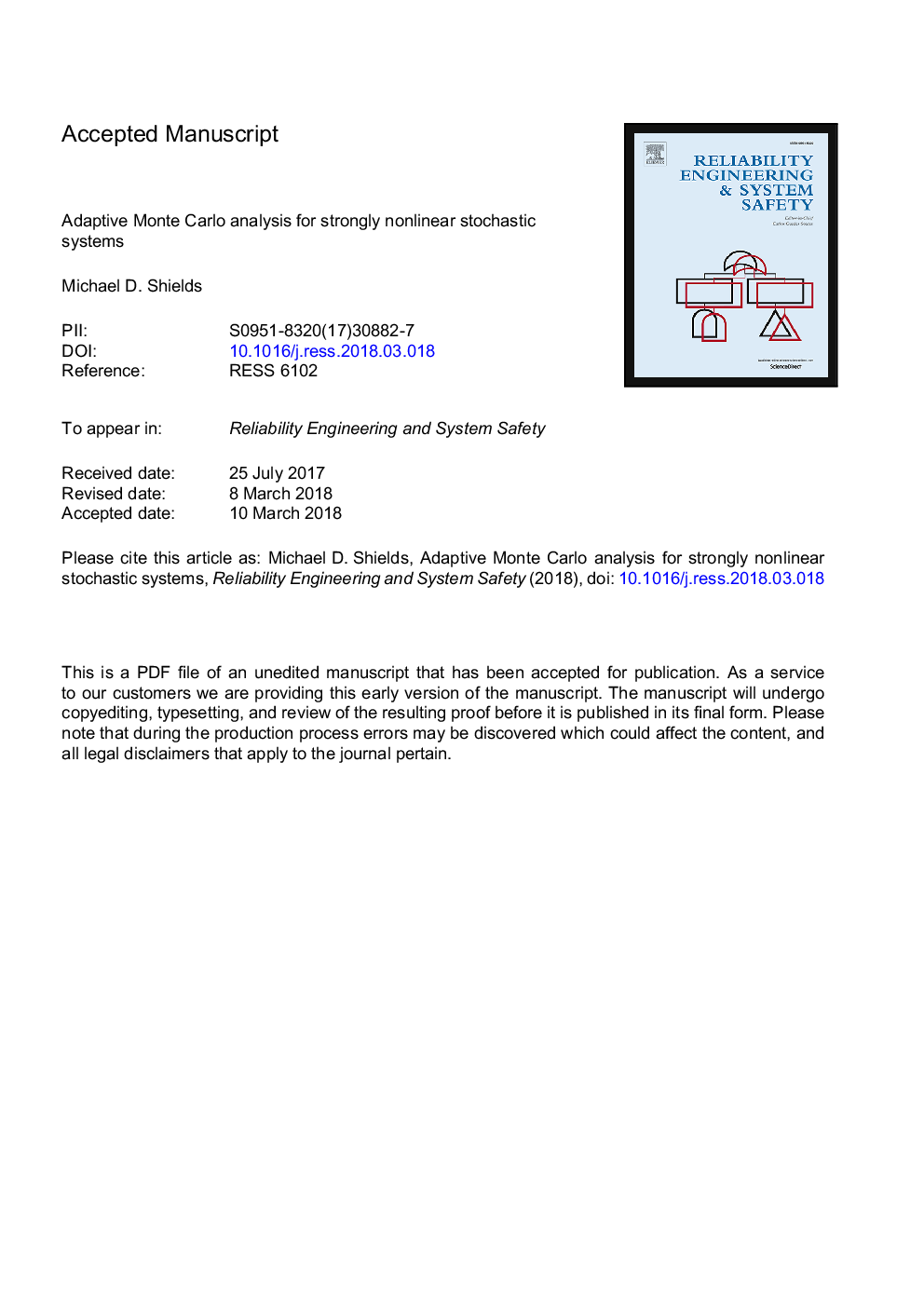| Article ID | Journal | Published Year | Pages | File Type |
|---|---|---|---|---|
| 7195180 | Reliability Engineering & System Safety | 2018 | 45 Pages |
Abstract
This paper compares space-filling and importance sampling (IS)-based Monte Carlo sample designs with those derived for optimality in the error of stratified statistical estimators. Space-filling designs are shown to be optimal for systems whose response depends linearly on the input random variables. They are, however, shown to be far from optimal when the system is nonlinear. To achieve optimality, it is shown that samples should be placed densely in regions of large variation (sparsely in regions of small variation). This notion is shown to be subtly, but importantly, different from other non-space-filling designs, particularly IS. To achieve near-optimal sample designs, the adaptive Gradient Enhanced Refined Stratified Sampling (GE-RSS) is proposed that sequentially refines the probability space in accordance with stratified sampling. The space is refined according to the estimated local variance of the system computed from gradients using a surrogate model. The method significantly reduces the error in stratified Monte Carlo estimators for strongly nonlinear systems, outperforms both space-filling methods and IS-based methods, and is simple to implement. Numerical examples on strongly nonlinear systems illustrate the improvement over space-filling and IS designs. The method is applied to study the probability of shear band formation in a bulk metallic glass.
Keywords
Related Topics
Physical Sciences and Engineering
Engineering
Mechanical Engineering
Authors
Michael D. Shields,
